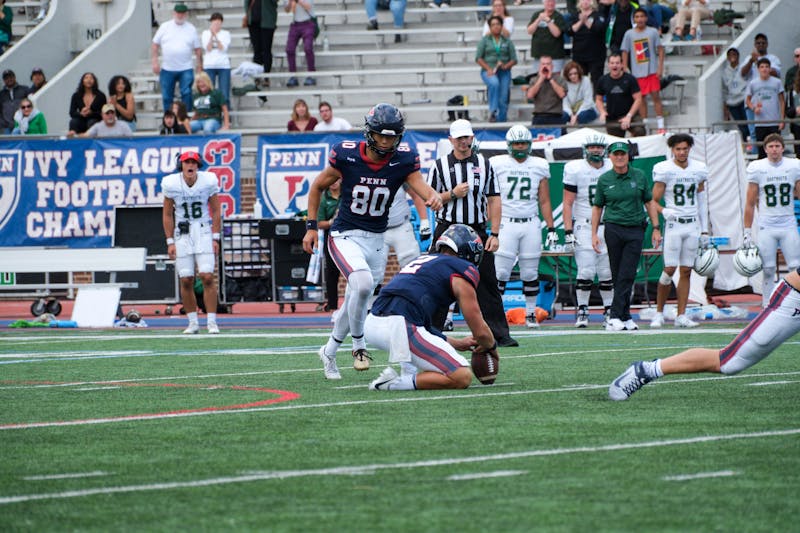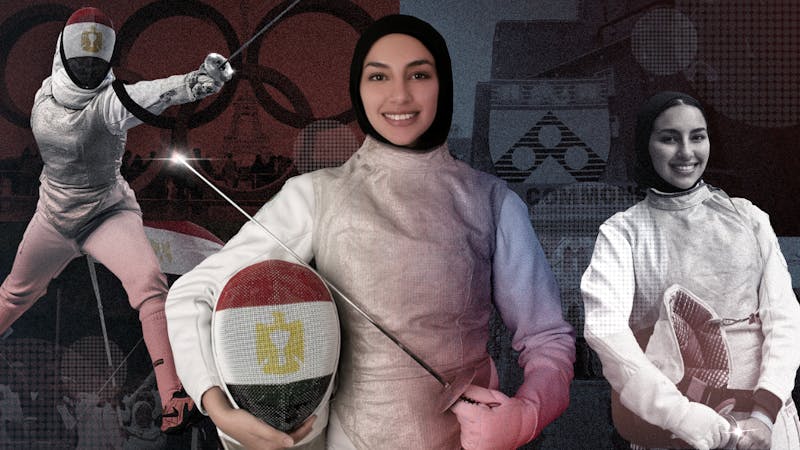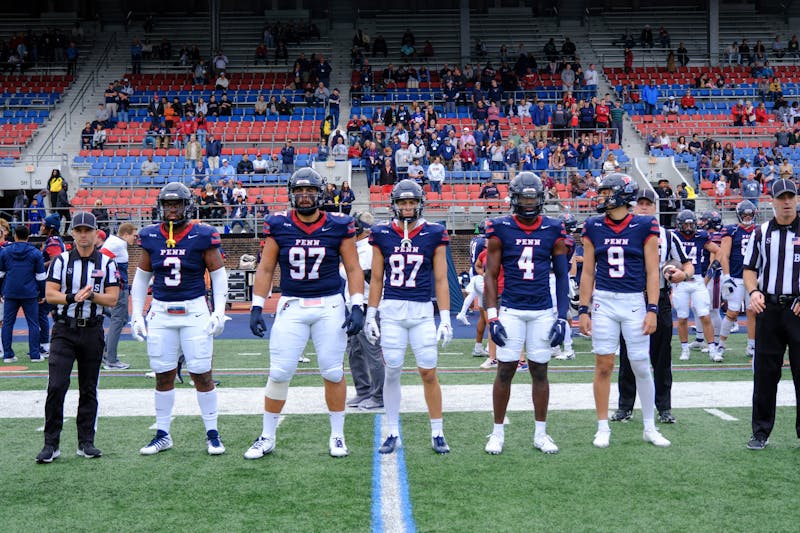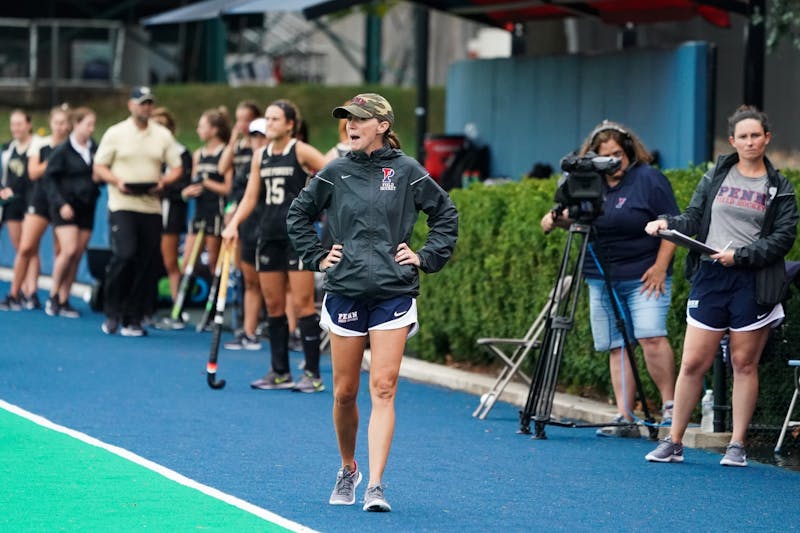
Everyone enjoys a break now and then. For the Penn distance runners who compete during cross country and track and field seasons, those training breaks are few and far between with their demanding, year-round training.
For most sports, there are designated seasons for main competition and training: for example, football in the fall and swimming in the winter. However, this isn’t the case for many of Penn’s distance runners, who train and race throughout the fall, winter, and spring seasons as members of the cross country, indoor track and field, and outdoor track and field teams.
In preparation for cross country season in the fall, senior cross country and track and field athlete Silas Ruth says the team begins almost immediately after the outdoor track and field season concludes.
“We focus on building up for cross country after an intense track season and then take a week off to let the body recover, but that’s all of the rest time runners get — a week after track season before we switch straight to cross country training,” Ruth said.
Once summer ends, the team returns back to campus during the New Student Orientation period and starts training together again.
While it may seem intimidating training and being in season all school year, junior cross country and track and field athlete Dennis Fortuna said that the consistent, routine aspect of their training is a great benefit.
“Our schedule is consistent from the fall into the spring since we’re training all year round compared to sprinters,” Fortuna said. “It puts me into a good schedule, just as a daily routine. Even in the summer, I still follow that schedule. Even if I’m not in school, I’ll still get up in the morning to run in the afternoon as well … just to make everything a lot more consistent.”
Being a student-athlete poses a significant holistic burden, but running year round is another level of wear and tear. Fortuna said that while athletes adjust to the mental challenges, it takes consistent effort to manage the physical wear and tear year round.
“Running does have a large impact on your body,” Fortuna said. “We sleep a lot. We’re always in bed fairly early, and then [on] the days we can sleep in, we take advantage of that. [Our] coach also takes us into the weight room twice a week, mainly for injury prevention.”
Each athlete has their own preferences and specifications: Fortuna can handle running seven days a week, while some of his teammates run five to six days a week and cross-train on the bike, elliptical, or in the pool. This is meant to help avoid muscular and stress injuries, a common issue among high-volume runners.
When it comes to academics, cross country and track and field athletes, like other student-athletes, face challenges in regards to time management. Athletes often liken their classes to a “high school schedule” due to its typical timeframe of 10 a.m. to 3 p.m., while runners specifically lack an “off” semester to focus primarily on their classes or career.
“Balancing work and training is ultimate[ly] hardest thing,” Ruth said. “For example, in the summer, when you’re working on an internship, you do have to also [run] 80, 90, 100 miles a week while your other athlete friends are resting, which represents a challenge in staying motivated all year round.”
On the academic side of things, Fortuna is a student in the School of Nursing, which causes scheduling difficulties with balancing clinicals and longer classes. Fortuna sometimes has to make up clinicals on the weekends due to travel for Friday cross country meets. However, the support from his coaches and professors do help in managing all of his commitments.
This support carries over into the team and its culture that is integral to the success of the cross country and track and field athlete cohort.
“We all get each other up in the morning,” Fortuna said. “We get each other out the door and get each other to run. We work off each other to help achieve [our] goals. Having a team that is all at the same skill level with the same passion — it really does help.”
“[Competitions are] super, super fun. I love the team element and the team support,” Ruth said.
Despite the challenges of running year round, Fortuna would not have his college career any other way.
“Before I even came to Penn, the coach [told] me that it’s a hard program,” Fortuna said. “[But coaches and support staff] will work everything they can to ensure that I stay on track. … As hard as it may sound, I’ve enjoyed it a lot, and I’m really grateful for the support I get, so I don’t want to throw any of it away. I have this opportunity. Why not seize every moment for these four years?”
The Daily Pennsylvanian is an independent, student-run newspaper. Please consider making a donation to support the coverage that shapes the University. Your generosity ensures a future of strong journalism at Penn.
Donate









